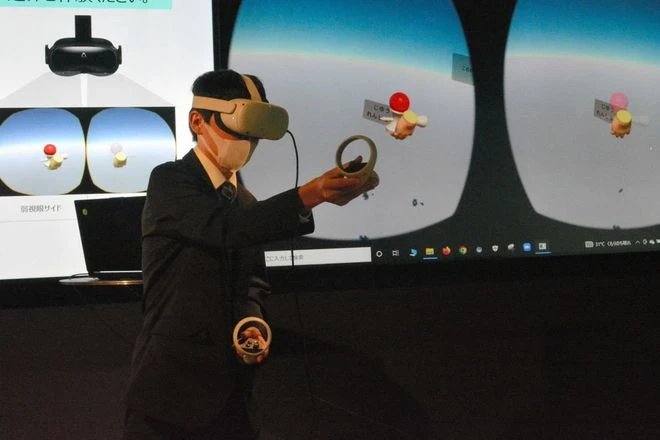Islamabad, June 6, 2025: Video games are often criticised for harming eyesight, but new research from Japan indicates that VR gaming might actually help enhance it.
A limited trial carried out by Kwansei Gakuin University’s Graduate School of Science and Engineering revealed that a specially created virtual reality (VR) game could aid in reversing short-term near-sightedness, referred to as pseudo-myopia.
The study involved ten volunteers who played a basic VR shooting game over a six-week period. In the game, players were tasked with hitting circular objects that gradually moved further into the distance after every successful strike.
This VR gaming compelled users to constantly adjust their focus between nearby and distant points, mimicking vision therapy methods used by eye specialists to ease eye fatigue and counter pseudo-myopia.
Pseudo-myopia imitates the signs of actual myopia (nearsightedness) but is generally treatable. It usually stems from excessive screen exposure and may be reversed through distance-viewing exercises and stereoscopic vision training. By embedding these practices into gameplay, researchers created an enjoyable and regular form of visual training.
READ MORE: Japanese Scientists Develop Artificial Blood For All
The most significant progress was observed in participants who initially had moderate to high levels of nearsightedness. Scientists believe their improvement stemmed from pseudo-myopia, which can be corrected without surgery or lenses—unlike true myopia.
READ MORE: Scientists Warn of New Bat Coronavirus in China
Notably, even those who played the game only once every three days experienced visible progress, showing that frequent daily use may not be necessary. The research group now aims to broaden the scope of the study to confirm these results and potentially bring the therapeutic VR game to the wider market.
If larger trials affirm the outcome, this innovation could offer a safe, non-invasive remedy for millions of individuals particularly youth facing eyesight problems due to extended screen use.









